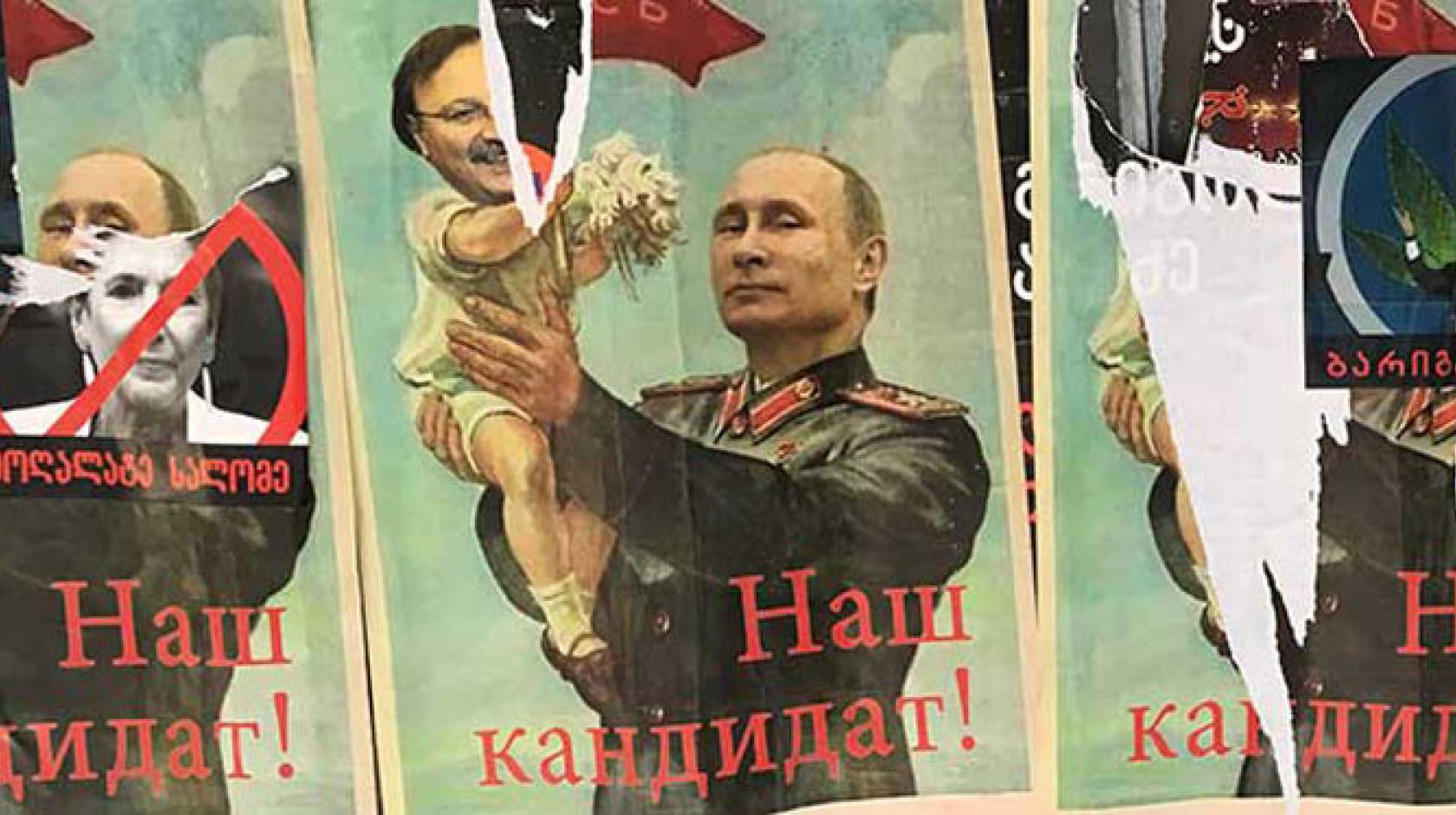Christine Clark, UC San Diego

As the highly anticipated 2018 midterms near, political science professor Lauren Prather has found that Americans increasingly distrust elections.

Credit: UC San Diego
Previous research has shown that domestic issues such as gerrymandering, campaign finance and voter ID laws contribute to the trend; Prather’s study, however, is the first to look at how foreign actors trying to sway elections affects the psychology of voters. The consequences may be worse than you think.
Prather, an assistant professor at the UC San Diego School of Global Policy and Strategy, recently launched a two-tiered study on voter trust in elections: one in the country of Georgia to study its presidential election, which took place Oct. 28, and another around the upcoming Nov. 6 midterm elections in the United States. According to Prather, the two countries halfway around the world from each other, in fact, have some striking similarities.
“Given Georgia’s long-standing relationship to Russia, and its recent independence from the former Soviet Union, the superpower acts as constant security threat,” Prather said, who was on the ground studying the elections in the Caucasus nation. “It’s a commonly held belief among Georgians that Russia is trying to pull the strings, but this same fear in the U.S. is relatively new, and may be a part of our dynamic moving forward.”
The U.S. Department of Justice recently released a report outlining how Russia has launched an elaborate campaign of “information warfare” to interfere with the upcoming midterm elections. In addition, President Trump has made claims that China is trying to interfere with the elections as well.
Polarized electorates lack trust

Credit: UC San Diego
For both Georgia and the upcoming U.S. midterms, Prather and her collaborator, Yale University political science professor Sarah Bush, are surveying voters to identify effects of foreign interventions on political attitudes and behaviors. Prather’s research looks at how these factors affect the psychology of voters and what that means for the health of democracy in these two countries.
“We know there’s evidence of foreign actors interfering with elections, and data that shows people are losing trust in the electoral process — we’re trying to understand the relationship between the two,” Prather said.
The researchers define trust in election outcomes as whether people believe the results truly reflect the will of the people. However, these beliefs intersect with the preconceived notions of voters as well.
“Individuals are sometimes biased in how they see the world. In particular, we have to look at their emotional responses to elections and to specific foreign actors,” she said.
Prather has already uncovered that voters of losing candidates are less likely to believe election results are trustworthy, while the opposite is true for supporters of winning candidates. The result stems from, and contributes to, a more polarized electorate.
Prather will be comparing this data with evidence from other elections: the 2016 presidential elections in the United States and the 2014 presidential and parliamentary elections in Tunisia, a transitional democracy.
Consequences last for years

Credit: UC San Diego
Preliminary data shows that the consequences of foreign meddling do not simply end with a more divided nation; they can persevere for years in the behaviors of voters.
“Previous research has shown that lack of trust in elections leads to passive voter behavior,” she said. “If people lose faith in the process, they are less likely to vote, they are less likely to call their representatives or become civically engaged in other ways.”
Prather hopes that by uncovering the link between foreign interventions in elections and electoral trust among the electorate, the research could possibly shape policy to protect democratic institutions from foreign threats.
She points to a recent comment former Facebook chief security officer Alex Stamos said on CNN.
“What if Pearl Harbor happened and half the country thinks it was a hoax…as a country we are not going to be able to respond to this problem [of foreign meddling] unless we agree it’s a problem,” Stamos said.
Prather added, “Our research shows that people’s biases lead them to hold different beliefs about the occurrence of foreign meddling. To the extent that foreign meddling accelerates distrust in elections, we want to know that, and we want to be able to stop it.”
Prather’s data collection in both countries will conclude in late November, at which time the results will be made public.
She will be a panelist at a Nov. 20 event on campus, Public Opinion on U.S. Foreign Policy, a roundtable discussion state of public opinion on U.S. foreign policy. The event hosted by the School of Global Strategy and Policy is part of the school’s 30th anniversary celebration.
For more information about Prather’s research, go to Lauren Prather's faculty directory.

